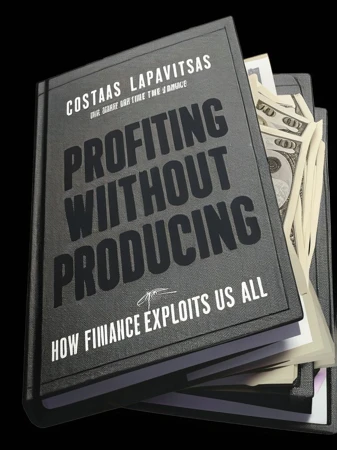Profiting Without Producing – How Finance Exploits Us All

Blurb
Financialization is one of the most innovative concepts to emerge in the field of political economy during the last three decades, although there is no agreement on what exactly it is. Profiting Without Producing puts forth a distinctive view defining financialization in terms of the fundamental conduct of non-financial enterprises, banks and households. Its most prominent feature is the rise of financial profit, in part extracted from households through financial expropriation. Financialized capitalism is also prone to crises, none greater than the gigantic turmoil that began in 2007. Using abundant empirical data, the book establishes the causes of the crisis and discusses the options broadly available for controlling finance.
Comment from our editors:
This book provides an advanced marxist analysis of neoliberal financialization, or the proliferation and growth of finance in non-financial actors to serve international capitalism. Lapavitsas lays the historical foundation for financialization (late-nineteenth century versus modern) as a cyclical tendency for monopoly capital to pursue liquidity and control. Analyzing its monetary basis (using marxist monetary theory) and capitalist basis, finance is shown as a mechanism to improve the efficiency of capitalist exploitation. Using an in-depth empirical analysis (following an impressive critical deconstruction of metrics and approaches), Lapavitsas shows how financialization has resulted in heightened indebtedness, instability, and inequality around the world – along with its additional implications for financialized imperialism and financial regulation.

